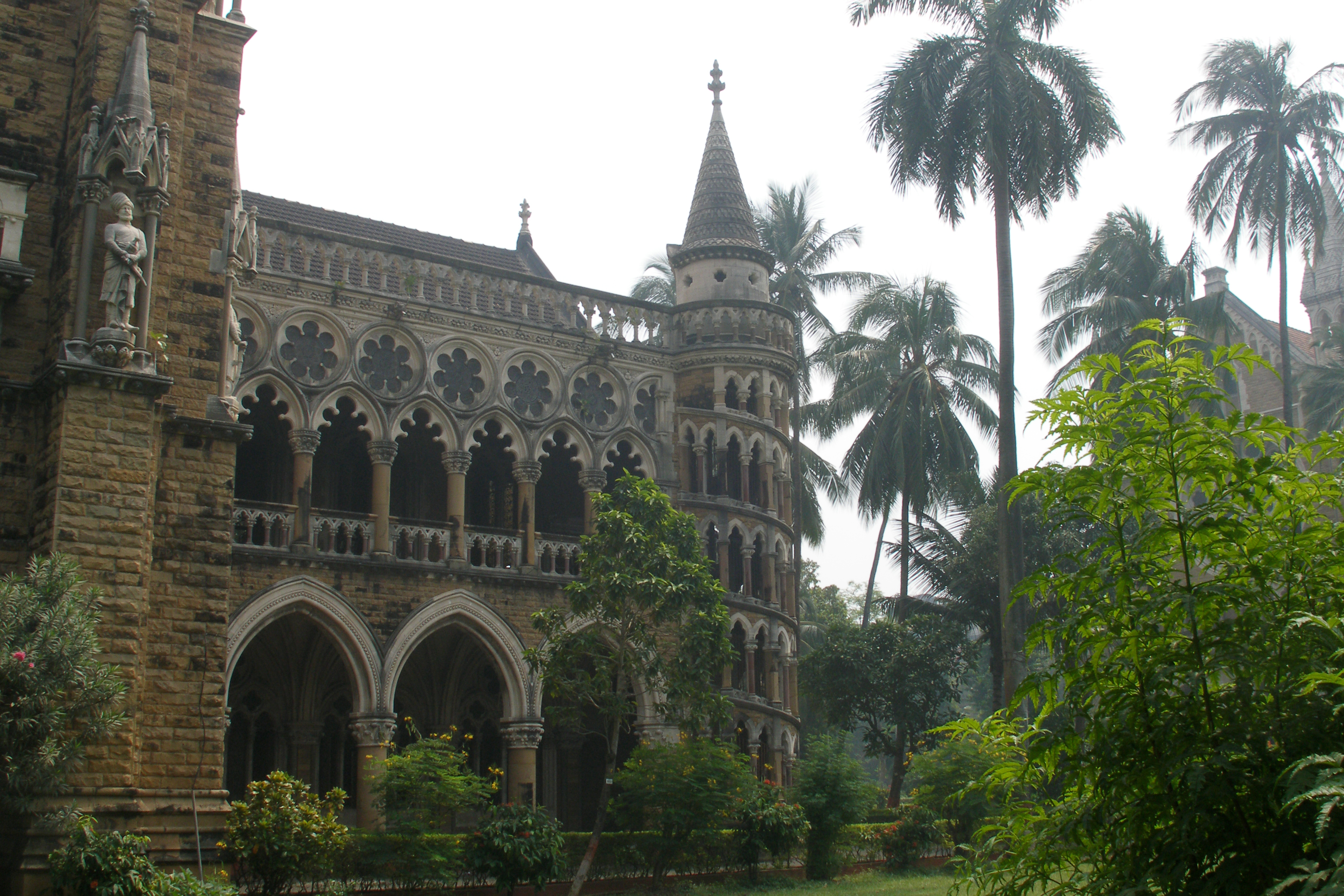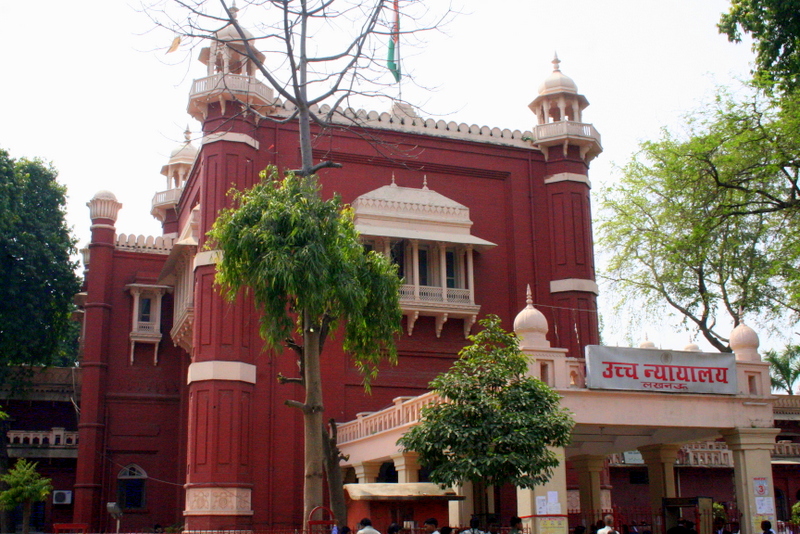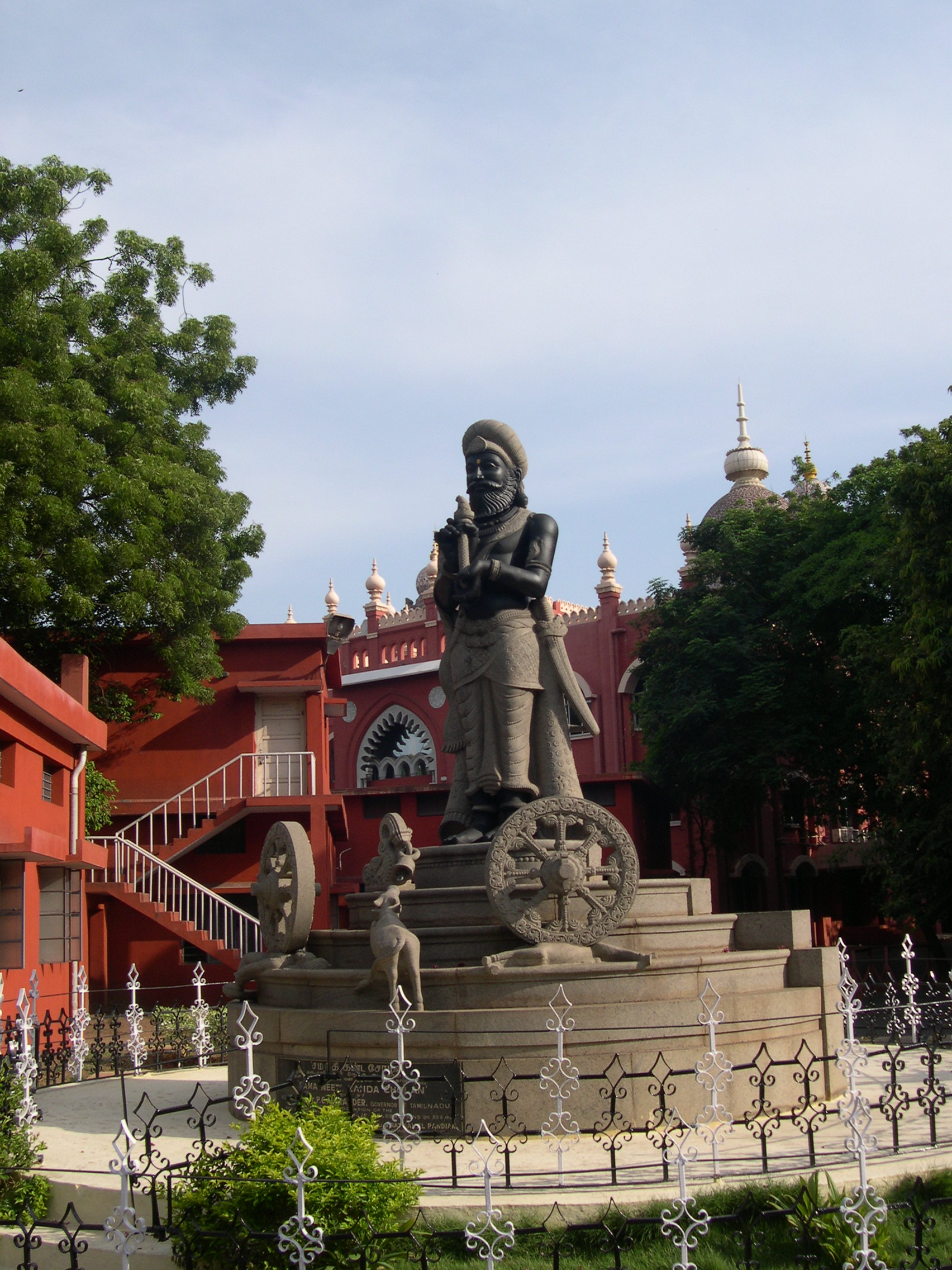|
Ramnarain Ruia College
Ramnarain Ruia Autonomous College is a college affiliated to the University of Mumbai, in Matunga, Mumbai, India. It was established in June 1937. The University of Mumbai granted autonomous status to Ramnarain Ruia College in year 2017. It comprises the Ramnarain Ruia College of Arts and Science which includes B. Voc course in Pharma analytical sciences under granted permission by UGC and the Ramnivas Ruia Junior College of Arts and Science. The college has been awarded a five star rating by the National Assessment and Accreditation Council (NAAC) of India. Also, the NAAC accorded it the A+ Grade and a CGPA of 3.70 out of 4, which is the highest in the state. The college was given the 'Potential for Excellence' status in 2010-11. Additionally, in 2014, Ruia College was adjudged a 'College of Excellence' by the University Grants Commission, New Delhi, and is the first College in the country to have received this status. Ruia college won the award for the best college given by ... [...More Info...] [...Related Items...] OR: [Wikipedia] [Google] [Baidu] |
University Of Mumbai
The University of Mumbai is a collegiate university, collegiate, State university (India), state-owned, Public university, public research university in Mumbai. The University of Mumbai is one of the largest universities in the world. , the university had 711 affiliated colleges. Ratan Tata is the appointed head of the advisory council. History In accordance with "Wood's despatch", drafted by Charles Wood, 1st Viscount Halifax, Sir Charles Wood in 1854, the University of Bombay was established in 1857 after the presentation of a petition from the Bombay Association to the British colonial government in India. The University of Mumbai was modelled on similar universities in the United Kingdom, specifically the University of London. The first departments established were the Faculty of Arts at Elphinstone College in 1835 and the Faculty of Medicine at Grant Medical College in 1845. Both colleges existed before the university was founded and surrendered their degree-granting priv ... [...More Info...] [...Related Items...] OR: [Wikipedia] [Google] [Baidu] |
Ashwini Bhide-Deshpande
Ashwini Bhide-Deshpande (born 7 October 1960) is a Hindustani classical music vocalist from Mumbai. She belongs to the Jaipur-Atrauli gharana tradition. Early life and education Born in Mumbai into a family with strong musical tradition, Ashwini started classical training under Narayanrao Datar, the elder brother of violinist D. K. Datar. She then completed her Sangeet Visharad from the Gandharva Mahavidyalaya. Since then, she has been learning music in the Jaipur-Atrauli style from her mother Manik Bhide, a disciple of Gaansaraswati Kishori Amonkar. Ashwini also received guidance from Ratnakar Pai until his death in 2009. Bhide-Deshpande holds a Master's degree in Microbiology and earned a doctorate in Biochemistry from Bhabha Atomic Research Centre, a Sangeet Visharad from the Akhil Bharatiya Gandharva Mahavidyalaya Mandal, Mumbai. She has also been the recipient of an honorary D.Lit. from ITM University (Gwalior). Performing career Bhide-Deshpande has performed at ve ... [...More Info...] [...Related Items...] OR: [Wikipedia] [Google] [Baidu] |
Speaker Of The Lok Sabha
The speaker of the Lok Sabha (IAST: ) is the presiding officer and the highest official of the Lok Sabha, the lower house of the Parliament of India. The speaker is elected generally in the first meeting of the Lok Sabha following general elections. Serving for a term of five years, the speaker chosen from sitting members of the Lok Sabha. Election of the speaker Newly elected Members of Parliament from the Lok Sabha elect the Speaker among themselves. The Speaker should be someone who understands Lok Sabha functions and it should be someone accepted among the ruling and opposition parties. MPs propose a name to the Pro term speaker. These names are notified to the President of India. The President through their aide Secretary-General notifies the election date. If only one name is proposed, the Speaker is elected without any formal vote. However, if more than one nomination is received, a division (vote) is called. MPs vote for their candidate on such a date notified by P ... [...More Info...] [...Related Items...] OR: [Wikipedia] [Google] [Baidu] |
Manohar Joshi
Manohar Gaju Joshi (born 2 December 1937) is a prominent politician from the state of Maharashtra. He was the Chief Minister of Maharashtra from 1995 to 1999 and Speaker of the Lok Sabha from 2002 to 2004. He is one of the prominent leaders of the Shiv Sena. He is also second Indian to be elected to all of the four legislatures. Background and family Joshi was born on 2 December 1937 in the Marathi-speaking Brahmin family of Gajanan Krishna Joshi and Saraswati Gajanan in Nandavi of Raigad district in Maharashtra. He received his Masters of Arts and LLB degrees from Mumbai University. He married Anagha Joshi on 14 May 1964, with whom he has a son, Unmesh, and two daughters, Asmita and Namrata. His granddaughter, Sharvari Wagh, made her debut as an actress with the 2021 film ''Bunty Aur Babli 2''. Formation of Kohinoor After MA in law he joined Brihanmumbai Municipal Corporation (BMC) as an officer, but later started the Kohinoor technical/vocational training institute with ... [...More Info...] [...Related Items...] OR: [Wikipedia] [Google] [Baidu] |
University Of Pune
Savitribai Phule Pune University (SPPU), formerly the University of Poona, is a collegiate public state university located in the city of Pune, India. It was established in 1949, and is spread over a campus in the neighbourhood of Ganeshkhind. The university houses 46 academic departments. It has about 307 recognized research institutes and 612 affiliated colleges offering graduate and under-graduate courses. Savitribai Phule Pune University Ranked 12th NIRF Ranking in 2022 History The University of Pune was established on 10 February 1949 under the Pune University Act passed by the Bombay legislature in 1948. M. R. Jayakar became its first vice-chancellor. Its first office was started from the Nizam Guest House, which is part of Bhandarkar Oriental Research Institute on Law College Road. The university was operated at Nizam Guest House until 1 June 1949. Its current building was originally called the Governor House. As its name suggests, it was the seasonal retreat of the ... [...More Info...] [...Related Items...] OR: [Wikipedia] [Google] [Baidu] |
National Advisory Council
The National Advisory Council (NAC) of India was a unconstitutional body set up by the first United Progressive Alliance (UPA) government to advise the Prime Minister of India Manmohan Singh. Sonia Gandhi served as its chairperson for much of the tenure of the UPA. It assists the Institute in achieving and monitoring its mission and goals. History The NAC was set up on 4 June 2004 by prime minister Manmohan Singh, during the tenure of the first UPA government. Organization (2010–2014) The NAC - II consisted of a mix of activists, bureaucrats, economists, politicians and industrialists. * Sonia Gandhi - Chairperson * Mihir Shah - Member, Planning Commission * Narendra Jadhav - former bureaucrat & Member, Planning Commission * Ashis Mondal - Director of Action for Social Advancement (ASA), Bhopal * Prof. Pramod Tandon - Vice Chancellor, North Eastern Hill University * Deep Joshi - social activist * Farah Naqvi - social activist * Dr. N. C. Saxena - former bureaucrat * Anu Ag ... [...More Info...] [...Related Items...] OR: [Wikipedia] [Google] [Baidu] |
Planning Commission (India)
The Planning Commission was an institution in the Government of India, which formulated India's Five-Year Plans, among other functions. In his first Independence Day speech in 2014, Prime Minister Narendra Modi announced his intention to dissolve the Planning Commission. It has since been replaced by a new institution named NITI Aayog. History Rudimentary economic planning, deriving from the sovereign authority of the state, was first initiated in India in 1938 by Congress President Netaji Subhash Chandra Bose,Atul Tiwari ,Jawaharlal Nehru who had been persuaded by Meghnad Saha to set up a National Planning Committee. M. Visvesvaraya had been elected head of the Planning Committee. Meghnad Saha approached him and requested him to step down, putting forward the argument that planning needed a reciprocity between science and politics. M. Visvesvaraya generously agreed and Jawaharlal Nehru was made head of the National Planning Committee. The so-called "British Raj" also fo ... [...More Info...] [...Related Items...] OR: [Wikipedia] [Google] [Baidu] |
Narendra Jadhav
Narendra Damodar Jadhav (born 28 May 1953) is an Indian economist, educationist, public policy expert, professor and writer in English, Marathi and Hindi. He is an expert on Babasaheb Ambedkar. Dr. Narendra Jadhav has completed (on 24 April 2022) his first term as a Member of Rajya Sabha, the upper house of Indian Parliament. He previously served as member of the Planning Commission of India and the National Advisory Council. Prior to this, he worked as Vice Chancellor of Savitribai Phule Pune University, International Monetary Fund (IMF) and headed economic research at the Reserve Bank of India. Dr. Jadhav is a recipient of 72 national and international awards including four Honorary D.Litt Degrees and the title Commander of the Order of Academic Palms by the Government of France. Dr Jadhav is about to complete his ''magnum opus'' – a 61-hour Mega Web Series titled ‘Indian Constitution: The Pride of Our Nation’. The Mega Web Series made in English with participation fro ... [...More Info...] [...Related Items...] OR: [Wikipedia] [Google] [Baidu] |
Allahabad High Court
Allahabad High Court, also known as High Court of Judicature at Allahabad is the high court based in Prayagraj that has jurisdiction over the Indian state of Uttar Pradesh. It was established on 17 March 1866, making it one of the oldest high courts to be established in India. History Prayagraj became the seat of Government of North-Western Provinces and a High Court was established in 1834 but was shifted to Agra within a year. In 1875 it shifted back to Prayagraj. The former High Court was located at the Accountant General's office at the University of Allahabad complex. It was founded as the High Court of Judicature for the North-Western Provinces at Agra on 17 March 1866 by the Indian High Courts Act 1861 replacing the old Sadr Diwani Adalat. Sir Walter Morgan, Barrister-at-Law and Mr. Simpson were appointed the first Chief Justice and the first Registrar respectively of the High Court of North-Western Provinces. The location of the High Court for the North-Western Provin ... [...More Info...] [...Related Items...] OR: [Wikipedia] [Google] [Baidu] |
Madras High Court
The Madras High Court is a High Court in India. It has appellate jurisdiction over the state of Tamil Nadu and the union territory of Puducherry. It is located in Chennai, and is the third oldest high court of India after the Calcutta High Court in Kolkata and Bombay High Court in Mumbai. The Madras High Court is one of three high courts of colonial India established in the three Presidency Towns of Madras, Bombay and Calcutta by letters patent granted by Queen Victoria, dated 26 June 1862. It exercises original jurisdiction over the city of Chennai, as well as extraordinary original jurisdiction, civil and criminal, under the letters patent and special original jurisdiction for the issue of writs under the Constitution of India. Covering 107 acres, the court complex is one of the largest in the world, second only to the Supreme Court of the United Kingdom. The High Court consists of 74 judges and a chief justice. History From 1817 to 1862, the Supreme Court of Madras was ... [...More Info...] [...Related Items...] OR: [Wikipedia] [Google] [Baidu] |
Supreme Court Of India
The Supreme Court of India ( IAST: ) is the supreme judicial authority of India and is the highest court of the Republic of India under the constitution. It is the most senior constitutional court, has the final decision in all legal matters except for personal laws and interstate river disputes, and also has the power of judicial review. The Chief Justice of India is the Head and Chief Judge of the Supreme Court, which consists of a maximum of 34 judges, and has extensive powers in the form of original, appellate and advisory jurisdictions. New judges here are uniquely nominated by existing judges and other branches of government have neglible say as the court follows collegium system for appointments. As the apex and most powerful constitutional court in India, it takes up appeals primarily against verdicts of the High Courts of various states of the Union and other courts and tribunals. It is required to safeguard the fundamental rights of citizens and settles dispute ... [...More Info...] [...Related Items...] OR: [Wikipedia] [Google] [Baidu] |
Labour Party (UK)
The Labour Party is a political party in the United Kingdom that has been described as an alliance of social democrats, democratic socialists and trade unionists. The Labour Party sits on the centre-left of the political spectrum. In all general elections since 1922, Labour has been either the governing party or the Official Opposition. There have been six Labour prime ministers and thirteen Labour ministries. The party holds the annual Labour Party Conference, at which party policy is formulated. The party was founded in 1900, having grown out of the trade union movement and socialist parties of the 19th century. It overtook the Liberal Party to become the main opposition to the Conservative Party in the early 1920s, forming two minority governments under Ramsay MacDonald in the 1920s and early 1930s. Labour served in the wartime coalition of 1940–1945, after which Clement Attlee's Labour government established the National Health Service and expanded the welfa ... [...More Info...] [...Related Items...] OR: [Wikipedia] [Google] [Baidu] |






